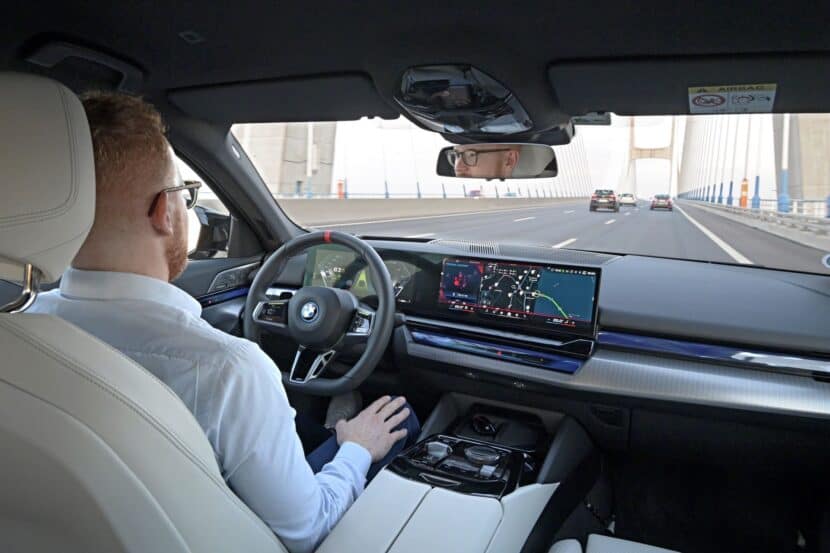The latest round of Euro NCAP’s Assisted Driving Test has revealed which vehicles are leading the pack when it comes to advanced driver assistance systems (ADAS). Unlike traditional crash tests, this evaluation focuses entirely on how well these systems can prevent accidents and assist drivers in various driving conditions. BMW, a brand that has consistently performed well in this area, continues its strong track record with the all-new BMW i5 (G60).
The 2024 version of the test is much tougher than previous years, yet BMW’s electric 5 Series still secured the coveted “Very Good” rating, maintaining the automaker’s unblemished performance in this category. BMW previously earned similar accolades in 2020 with the 3 Series and in 2021 with the iX3. The BMW i5 was assessed while equipped with the optional Driving Assistant Professional system, which provides a comprehensive suite of assistance capabilities, including speed and distance regulation, as well as lane-keeping functionality. The vehicle can be further upgraded with the Highway Assistant, designed specifically for extended high-speed driving scenarios.
The testers praised the i5 for its ability to manage these tasks efficiently while keeping the driver engaged and alert. Since these are Level 2 systems, where drivers must maintain control and responsibility, the testers appreciated how the vehicle required the driver’s active attention.
What is the Highway Assistant?

Earlier this year, BMW updated its Highway Assistant feature on various models like the iX, 5 Series, 7 Series, X5, X6 (except M Competition models), X7, and standard on the XM. This feature allows hands-free driving up to 85 mph where it’s safe and legal. The previous version of the Highway Assistant, which is offered in most 2022 models, had a speed limit of 40 mph and required the driver to keep their eyes on the road at all times. The new version, however, will increase the speed limit to 85 mph and use an advanced eye-tracking system to monitor the driver’s attention level. This means that the driver can relax more and enjoy the ride, as long as they are ready to take over when needed.
While the BMW i5 performed exceptionally well, another strong contender in the test, the Mercedes C-Class, edged ahead in specific areas. With its Driving Assistance Package Plus, the C-Class not only received a “Very Good” rating, but scored higher in two crucial aspects of the test. In the “Assistance Competence” category, which measures how well the car manages speed and lane control, the C-Class scored an impressive 85%, compared to the i5’s 76%. It also excelled in the “Safety Backup” category, achieving 97%, while the BMW earned 90%.
It remains unclear whether BMW’s Highway Assistant, had it been included in the i5’s test setup, would have pushed the vehicle’s scores closer to that of the Mercedes. While the BMW i5 and Mercedes C-Class emerged as clear leaders in this round of testing, other models, such as the Volvo EC40 and Volkswagen ID.7, did not quite reach the same level of excellence. Both vehicles earned a “Good” rating, which reflects solid but not exceptional performance.
On the other end of the spectrum, the BYD Atto 3 struggled to meet the test’s requirements. Its Adaptive Cruise Control system was deemed insufficiently safe, and the vehicle received 0 out of 4 stars with a verdict of “Not Recommended.”
[Source: EURO NCAP via BimmerToday]






















































